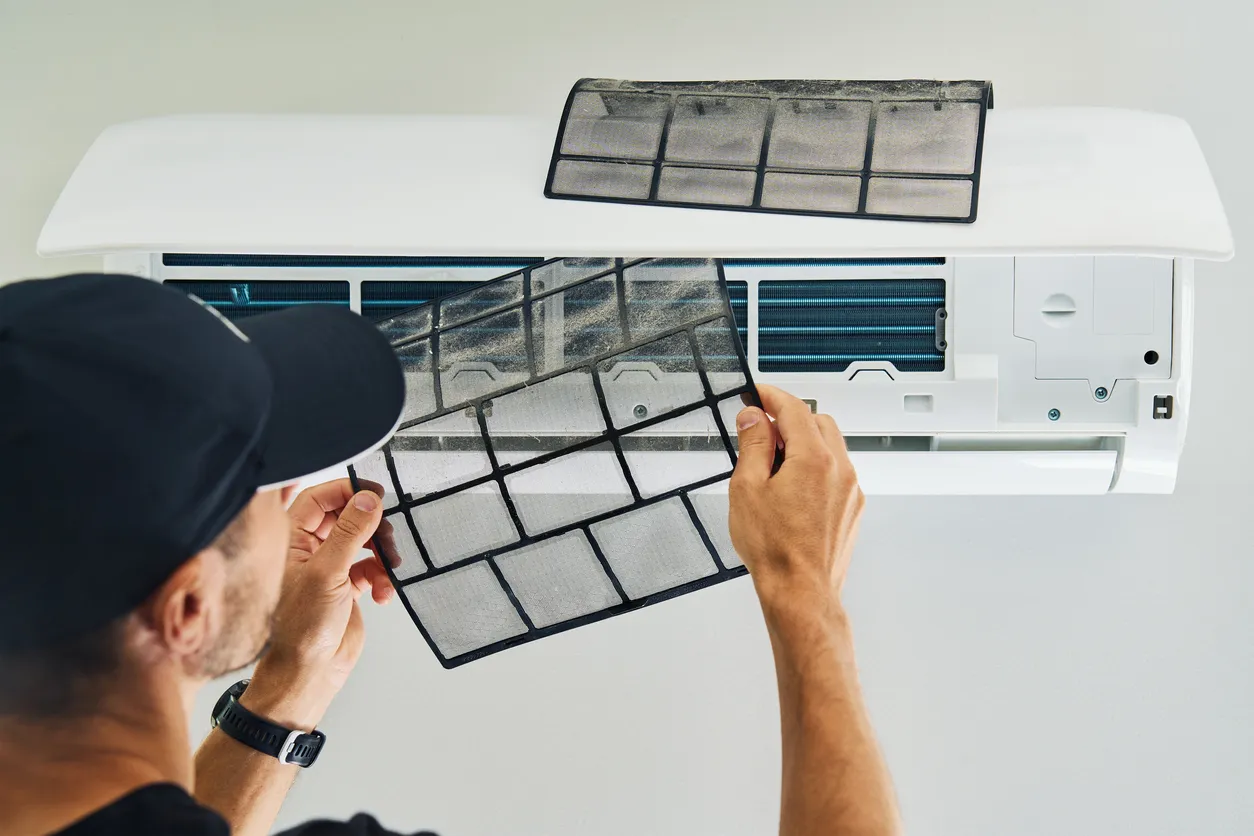In Stafford, many homeowners rely on their air conditioning units to keep their homes comfortable during the warm months. However, a common and frustrating problem is when an AC unit starts to freeze up. This issue can disrupt the cooling process and lead to discomfort. Understanding why your AC unit might freeze is important to address the problem effectively and avoid further complications.
When an air conditioning unit freezes, it loses efficiency and can even result in costly repairs or replacements if not properly managed. The most common causes are often linked to maintenance issues that, when left unaddressed, can escalate. By being aware of these causes, homeowners can take the necessary steps to prevent their AC systems from freezing and ensure they operate smoothly throughout the season.
Common Causes of AC Units Freezing Up
Insufficient airflow is often at the root of many freezing problems in AC units. When airflow is restricted, the evaporator coil can become too cold, causing it to freeze. Common culprits for restricted airflow include:
– Dirty air filters that are clogged with dust and particles.
– Blocked vents and registers that prevent air from moving freely through the system.
– Obstructed ducts that accumulate dust or debris over time.
Each of these issues can decrease air circulation, making your AC work harder to maintain the desired temperature. If ignored, it can lead to freezing.
Low refrigerant levels also play a significant role in this frustrating problem. When there is a leak or the refrigerant levels are too low, the pressure inside the AC system drops, leading to the windings around the coils freezing. It’s crucial to have refrigerant levels checked regularly by our technicians to prevent this from occurring.
Another cause of freezing is improper thermostat settings. If the thermostat is set too low or is malfunctioning, it can prevent the AC from reaching the correct temperature, causing the system to overcompensate and freeze up. Ensuring the thermostat is correctly set and functioning can help maintain the proper balance within your AC unit.
Signs Your AC Unit is Freezing Up
Identifying the signs of a freezing AC unit can help you act before the problem escalates. One of the most obvious signs is visible ice buildup on parts of your AC system. You might notice ice forming on the outdoor unit or on the indoor coils, both indicators that the system is not operating correctly. This visual cue should be addressed quickly to avoid complications.
Another indicator is a noticeable drop in cooling efficiency. A freezing AC unit struggles to cool the home effectively, resulting in uneven temperatures or areas that remain uncomfortably warm. If your home’s temperature is inconsistent, it might be worth checking for ice on the unit or calling for a professional assessment.
Unusual noises can also signal a problem. Pay attention to strange sounds such as hissing or bubbling, which can hint at refrigerant leaks or other underlying issues. These sounds often accompany freezing problems and can guide you to seek repairs. If you encounter any of these signs, consulting with professionals is crucial to prevent further damage to your system.
Steps to Prevent AC Units from Freezing
Preventing your AC unit from freezing requires a proactive approach. Regular maintenance is key to keeping your system in top condition. Replace air filters frequently to ensure proper airflow and reduce the chances of dirt and dust causing clogs. Our professionals recommend checking filters monthly and replacing them as needed to maintain efficient operation.
Keeping thermostat settings appropriate for the season and daily usage can also prevent freezing. Avoid setting the thermostat too low, which can cause the system to overwork and lead to freezing. A moderate setting helps maintain balance within your unit, ensuring it runs smoothly.
Routine inspections by our technicians can catch and resolve issues before they develop into larger problems. Scheduled system check-ups help monitor refrigerant levels and detect leaks, preventing the freezing of coils. These inspections not only keep your AC running effectively but can also extend its lifespan.
When to Consider AC Replacement
In some cases, repeated freezing issues might prompt you to consider replacing your AC unit. If your system continues to freeze despite repairs, it may be time to think about a replacement. Persistent problems can indicate that the unit is no longer operating efficiently or is too worn to function correctly.
Older AC units are generally more susceptible to freezing and other operational issues. If your system is aging, evaluating a new, modern unit may be more cost-effective and reliable in the long run. Investing in a newer model can enhance energy efficiency, reducing energy bills and preventing freezing episodes.
A new AC system not only addresses ongoing issues but can also provide better performance and comfort standards. When faced with frequent malfunctions, considering a replacement can be a prudent choice to maintain a comfortable and hassle-free home environment.
Ensuring Comfort and Efficiency
Addressing freezing issues with your AC unit is essential for maintaining comfort in your home. By recognizing signs of freezing and understanding their causes, you can promptly seek solutions. Regular maintenance, appropriate thermostat settings, and timely inspections are effective strategies to prevent freezing and ensure the continued efficient operation of your system.
Should problems persist, evaluating the need for a replacement might be necessary to achieve optimal home comfort. A new AC installation can deliver consistent performance and peace of mind. By addressing these concerns thoughtfully, you create a reliable and cozy environment for you and your family.
If freezing issues continue to disrupt your home’s comfort, consider our AC replacement in Stafford to restore reliable cooling and avoid recurring problems. Weather Cool Inc is committed to assisting you with expert support so that your system functions efficiently every day. For a quick estimate or to book a service visit, please contact us today.




